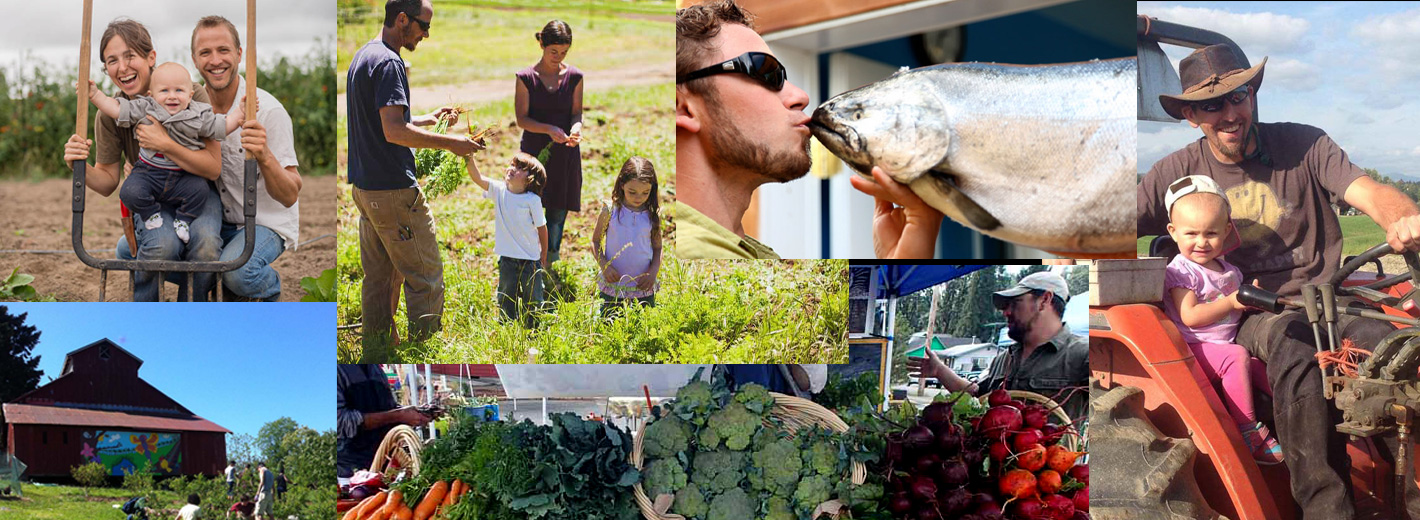
Bon Appétit Fork to Farm Grant Finalists: Pacific Northwest
Four produce growers need fencing, a packing shed, help updating an old barn, and reconstructing recycled greenhouses, while a seafood distributor hopes for a commercial vacuum packaging machine.
Bon Appétit employees and guests at our locations in Idaho, Seattle, and Washington will get to vote for their two favorites from these five finalists on September 23, our 10th annual Eat Local Challenge. (To see the other regional finalists, use the links at the top of this page.)
grant RECIPIENTS
GUEST PICK: Flying Fish Company, Portland, OR
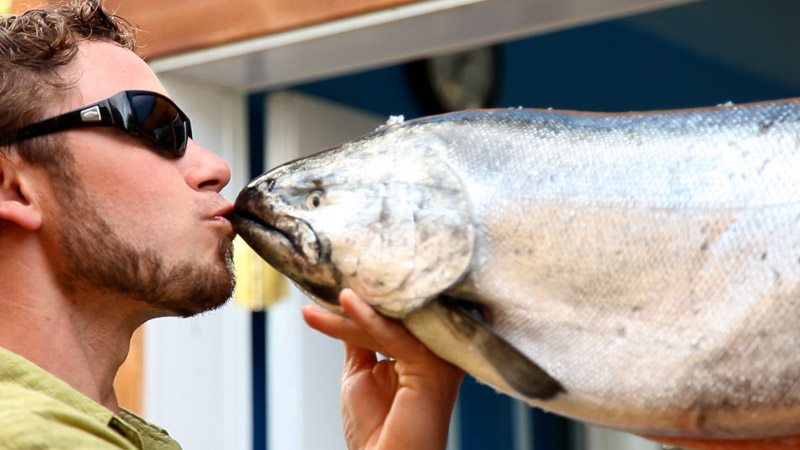 Local, sustainable seafood sourced direct from the fishermen on the Oregon coast.
Local, sustainable seafood sourced direct from the fishermen on the Oregon coast.
Project: A new commercial vacuum packaging machine and blast freezer to seal and preserve the local catch for sales outside of the harvest season.
Details: Oregon is blessed by the bounty of the sea. We have many certified sustainable fisheries including: wild salmon, albacore tuna, Dungeness crab, bay shrimp, rockfish, sole, cod, halibut, and more. Many of these fisheries are short seasons, so finding a way to preserve the catch and supply the marketplace more consistently will help us better supply our customers.
Flying Fish Company started in 1979 in Sandpoint, ID. This was the year before I was born, so I have been around fish my whole life. I started Flying Fish Portland in 2009, and we have grown significantly since the beginning. We continue to need equipment to grow with the additional demand from the growth. We are a small, family-run business. Flying Fish Company Portland has nine employees plus Lyf Gildersleeve, the owner, who lives in Portland with his wife and two young kids.
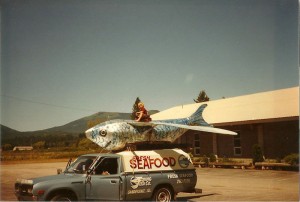
The commercial vacuum packaging machine costs $5,000. The blast freezer used is over $5,000, so this grant would help finance this project. Flying Fish Company will cover the remaining expenses that are not included with the grant.
(Optional) How has working with Bon Appétit been helpful to you and your business?
Working with Bon Appétit has helped grow my business significantly. Because of Bon Appétit I have greatly expanded my wholesale business. I have hired two new employees for my wholesale program, and I now have three delivery vehicles. The additional revenue from Bon Appétit has enabled me to order more fish per delivery, which gets us better pricing and more fishermen are willing to bring in their catch when it’s a big enough order to deliver.
STAFF PICK: Garden Treasures Organic Farm, Arlington, WA
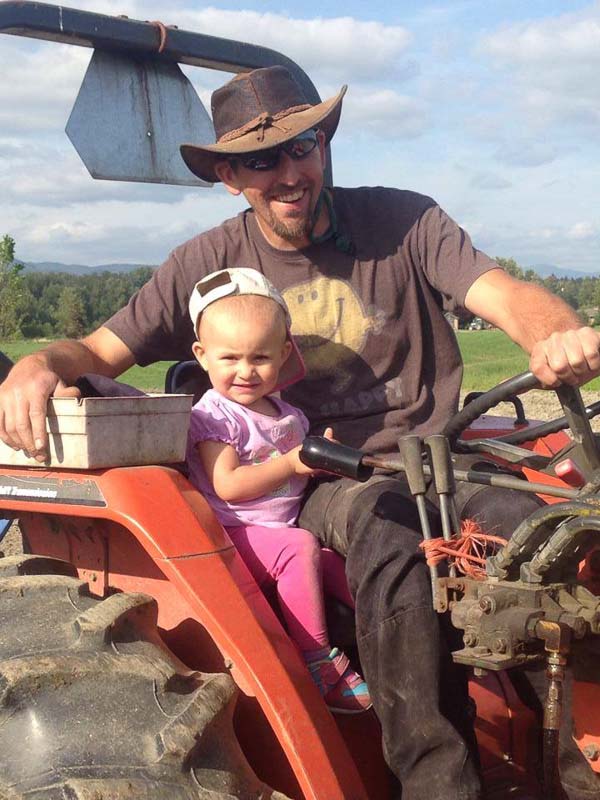 Grows Certified Organic produce available for purchase in our farm store and through our summer CSA program, and distributed to our wholesale customers.
Grows Certified Organic produce available for purchase in our farm store and through our summer CSA program, and distributed to our wholesale customers.
Project: Construction and outfitting costs to erect 10 large greenhouses that we have already acquired from retiring farmers in Oregon, which will provide our community with a greater selection of locally grown for a longer harvest season.
Details: Garden Treasures has positioned itself in the local marketplace as a nearly year-round source of organic produce for both retail and wholesale sales. Because of our location north of Seattle, we have limited planting cycles and a much shorter growing season than Oregon growers. We also have heavy rainfall in spring, making it hard to get quality and consistency to the market in the volume demanded. Having additional greenhouses would allow us to provide our community with a greater selection of locally grown produce for a longer harvest season.
Over the past two seasons we have sourced, collected, and purchased $10,000 worth of used greenhouse structures from retiring growers in Oregon. We worked with those farmers to remove the greenhouses from their fields and have moved everything to our farm in Arlington, WA.
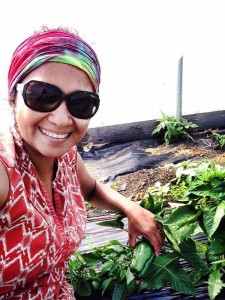
Currently the structures are lying disassembled in a pile on the edge of our field waiting for the resources to become available to finish the project. Procuring outside funding would ensure us the ability to erect the greenhouses and get them in production in just one season, instead of slowly building one or two units per year for the next five years. Once constructed, these greenhouses would extend our growing season by 10 weeks and double our greenhouse production area.
This funding would greatly increase the variety of the food we grow for sale locally. This is especially true in the early season when fresh produce is hard to find. At present, consumer and financial demand dictate that we use our current 12 greenhouses for growing mostly “hot weather crops” like tomatoes, peppers, and cucumbers, as they cannot be grown outside with commercial success in western Washington. With the additional 10 greenhouses, we would be able to provide our customers with more of our own products for a longer harvest season.
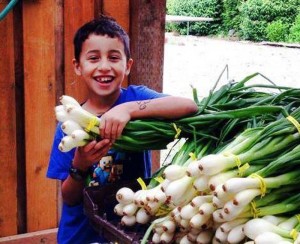 Demand is also much higher for crops grown in greenhouses because the quality and market timing is more in line with what customers are expecting though the wholesale distribution channels. Additionally, most of the crops we grow in our greenhouses are sold at significantly better margins than crops grown in the open fields. We estimate that with the addition of these 10 greenhouses, our annual revenue would increase by $50,000 to $100,000 annually, and we would be able to hire two more full-time, year-round positions.
Demand is also much higher for crops grown in greenhouses because the quality and market timing is more in line with what customers are expecting though the wholesale distribution channels. Additionally, most of the crops we grow in our greenhouses are sold at significantly better margins than crops grown in the open fields. We estimate that with the addition of these 10 greenhouses, our annual revenue would increase by $50,000 to $100,000 annually, and we would be able to hire two more full-time, year-round positions.
The remaining costs needed to complete the project total $20,000. This is broken down into roughly $15,000 of construction materials and $5,000 of labor. We would be able to use the majority of our current work force for the construction and have steady work in the winter.
(Optional) How has working with Bon Appétit been helpful to you and your business?
Working with Bon Appétit has helped our business reach the next level. The consistency and financial security provided by having a solid, weekly outlet for our produce is nothing short of awesome for us dirt farmers. So many of the crops we grow require months of lead time and investment before sale, so knowing Bon Appétit is going to utilize a certain amount is key to our success. It allows us to concentrate on growing and packing great food for direct delivery.
finalists
Creative Growers Organic Farm, Forest Grove, OR
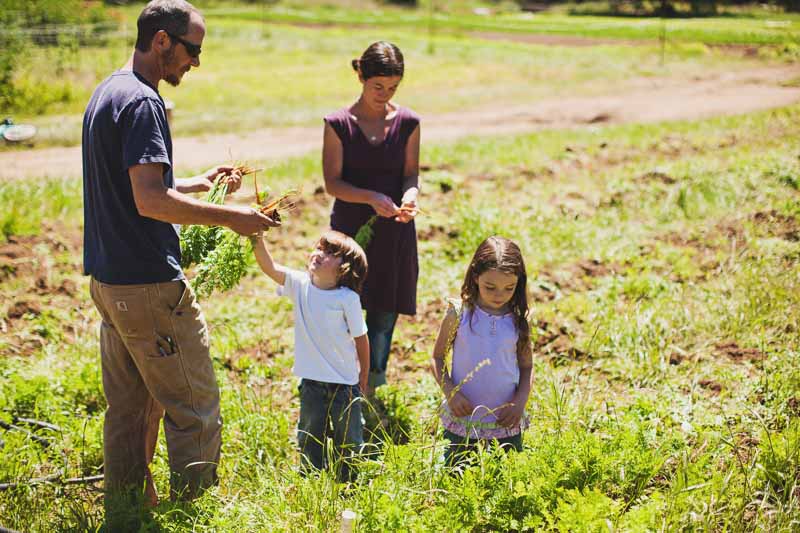 Grows 45+ different types of vegetables and fruits for restaurants, universities, and a 200+-member CSA. Was Certified Organic until this season, when moved entire operation — now in a transitional state until we can recertify.
Grows 45+ different types of vegetables and fruits for restaurants, universities, and a 200+-member CSA. Was Certified Organic until this season, when moved entire operation — now in a transitional state until we can recertify.
Project: A packing shed and permanent walk-in cooler.
Details: After 15 years on our old farm, we are starting from scratch all over again. In 2013 with the help of our CSA members, friends, and family, we were able to move our farm closer to our customer base of Portland, OR. This massive undertaking has us reeling in a state of transition and trying to get our feet under us while jumping right into the new growing season.
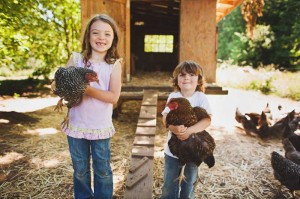 The list of ‘needs’ at the new farm is immense, and $5,000 would go a long way in helping us reestablish the infrastructure necessary to serve our customers’ needs. This transitional year has been challenging; we left behind a farm on which we had spent 15 years developing soil fertility and efficient production systems and are now having to build all over again at the new farm. We are currently functioning in a very bare-bones fashion, with a loaner walk-in cooler, only half of our greenhouses constructed (we ran out of time and money to finish this season), and a lean-to of a packing shed (eek!).
The list of ‘needs’ at the new farm is immense, and $5,000 would go a long way in helping us reestablish the infrastructure necessary to serve our customers’ needs. This transitional year has been challenging; we left behind a farm on which we had spent 15 years developing soil fertility and efficient production systems and are now having to build all over again at the new farm. We are currently functioning in a very bare-bones fashion, with a loaner walk-in cooler, only half of our greenhouses constructed (we ran out of time and money to finish this season), and a lean-to of a packing shed (eek!).
We took a big risk buying a new farm and moving, but the potential benefits for our business, our family, and our community of customers are worth it. Being only 45 minutes from the majority of our accounts (we were over two hours away before) opens up a wealth of opportunities for us to connect our farm more deeply to our customers and community.
Thank you for your consideration — Dave, Lori, Chloe, and Ryder Hoyle.
(Optional) How has working with Bon Appétit been helpful to you and your business?
We have loved working with our Bon Appétit accounts, some of them for over 10 years. We have several people that we have worked with over the years that have become good friends, and we value that level of relationship with our chefs. We have increased production almost every year in part due to Bon Appétit’s commitment to working with us. The new farm will give us the production capability to work with more Bon Appétit accounts in the near future.
Diggin’ Roots Farm, Molalla, OR
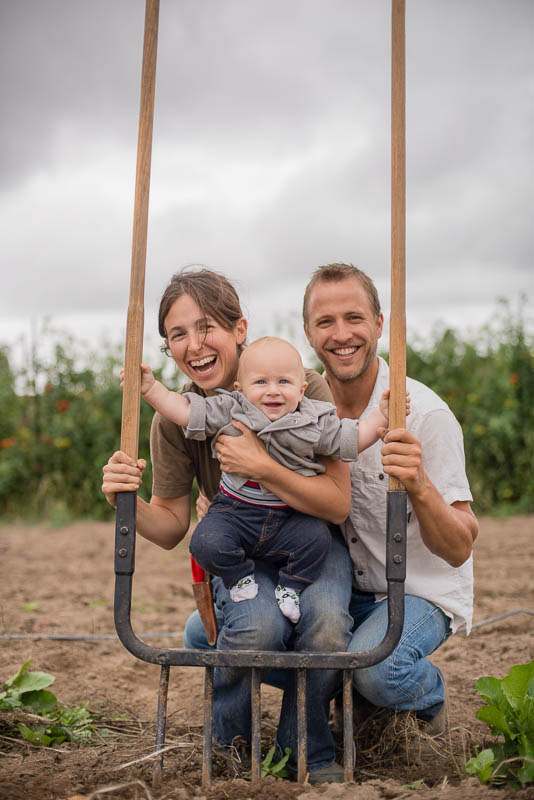 Vegetables, fruits, and meats produced using ecological farming principles and techniques. Will be Certified Organic in May 2015.
Vegetables, fruits, and meats produced using ecological farming principles and techniques. Will be Certified Organic in May 2015.
Project: There is nothing romantic or particularly compelling about fencing, but it is one of the most integral components of a diversified livestock and produce operation, allowing us to maximize the use of our land and supporting sustainable growth.
Details: Diggin’ Roots Farm began in 2007 on leased land in SW Washington. We quickly realized that we wanted space of our own into which we would grow and invest; building soil health and planting perennials were all long-term commitments that we did not want to compromise.
In 2012, we found it. We currently operate a 30-member CSA, attend a farmers’ market, and raise livestock on 35 acres of pasture just north of Silverton, OR. Previous to our tenure, this land was managed conventionally, which means that we must wait until May 2015 to establish organic certification. In the meantime, we focus on techniques that build soil health and increase biodiversity.
Our vision is a farm system that supports, incorporates, and invigorates the native ecosystem. This year we applied 20 tons of compost across our fields and utilized cover crops to build organic matter. We recently installed 1,200 feet of pollinator hedgerow and are in the process of clearing three acres of invasive plants from the stream corridor. This work might not make us any money, but it feels comforting somehow to enhance our little sliver of the planet.
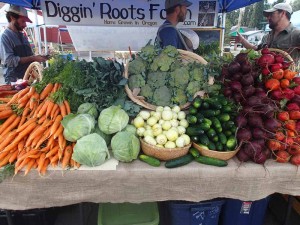
As a young farm, we juggle many competing priorities at any given moment and with every opportunity for investment. As we project ourselves into the next decade, fencing is the No. 1 priority, integral to maximizing use of the land and supporting sustainable growth. There is nothing romantic or particularly compelling about fencing, but it is one of the most integral components of a diversified operation, where managing healthy pasture is the foundation of resiliency and fertility.
Currently we are not able to utilize the large majority of our land because it is not fenced. On our 35 acres of pasture, we’ve started vegetable production on only two acres. Our small yet quickly expanding flock of sheep rotates through the rest of the field and will soon be joined by cows and poultry. As they graze the clovers and grasses, they deposit nitrogen and organic matter onto the soil surface, stimulating root development, and improving tilth in the soils below. Pasture is one of the most reparative “crops,” especially when it is rotationally grazed. We intend to rotate in three-plus-year cycles between pasture, cover crops, and annual vegetables. The goal is to rebuild soil, break up pest cycles, and provide nutritious food and outdoor access to our animals.
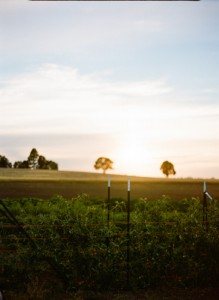 We have severe coyote and deer pressure that requires physical barriers; to do this effectively we need permanent fence. Additionally, with food safety being a top priority, it is essential that we can rely on permanent fence to maintain distance between our animals and crops. If funds are secured, we will use them to hire Hillcrest Fencing, a reputable local company. They will purchase the materials and install the fence for us. With these funds we should be able to fully fence a 10-acre portion of the property, which will allows us to expand production significantly, with livestock and vegetables.
We have severe coyote and deer pressure that requires physical barriers; to do this effectively we need permanent fence. Additionally, with food safety being a top priority, it is essential that we can rely on permanent fence to maintain distance between our animals and crops. If funds are secured, we will use them to hire Hillcrest Fencing, a reputable local company. They will purchase the materials and install the fence for us. With these funds we should be able to fully fence a 10-acre portion of the property, which will allows us to expand production significantly, with livestock and vegetables.
(Optional) How has working with Bon Appétit been helpful to you and your business?
We are incredibly excited to have developed a relationship with Bon Appétit at Mt. Angel Abbey. This relationship provides us an opportunity to offer the freshest wholesale produce to a location less than 10 miles from our farm.
Zenger Farm, Portland, OR
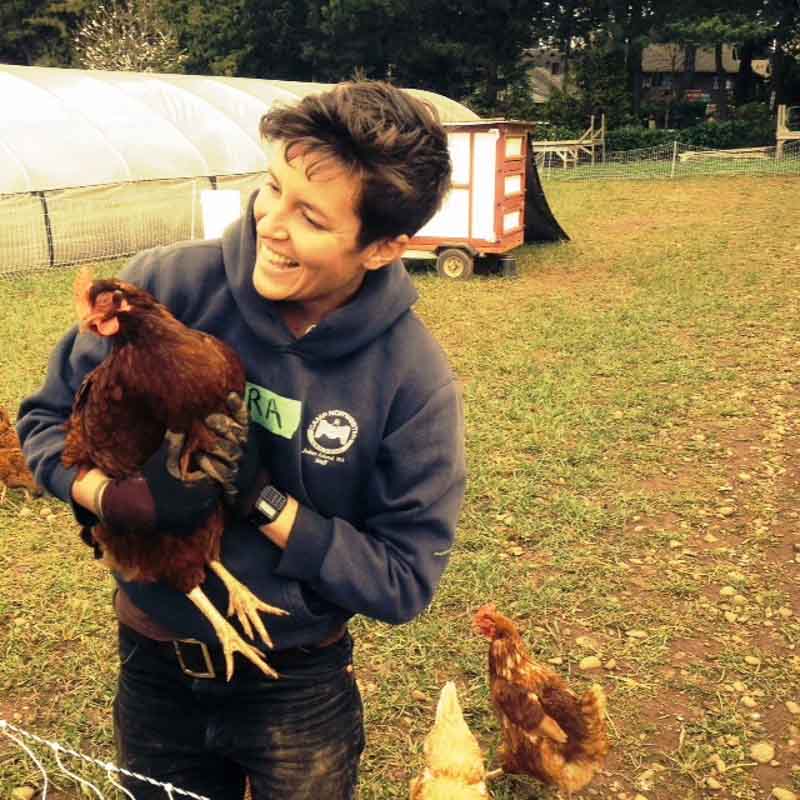 Six-acre nonprofit educational farm in outer SE Portland Grows fruits and vegetables and teaches over 8,000 visitors the Farm to Fork connection each year.
Six-acre nonprofit educational farm in outer SE Portland Grows fruits and vegetables and teaches over 8,000 visitors the Farm to Fork connection each year.
Project: Updating our centuries-old dairy barn to increase farm operation efficiency, including energy-efficient lighting and power outlets, a new staircase, a secure doorway, a level floor, improved drying and storage areas for crops, safety upgrades, and more.
Details: Zenger Farm is a six-acre nonprofit farming operation that models, promotes, and educates about sustainable food systems, environmental stewardship, community development, and access to good food for all. Along with experiential learning opportunities for farmers, youth, and families, we operate a 60-member Community Supported Agriculture (CSA) program and sell our produce to local restaurants, including Bon Appétit Management Company at Lewis & Clark College, Reed College, and OMSI.
Zenger Farm is celebrating its 15-year anniversary as an organization, but the land we sit on has a rich 100-year farming history. Initially operated as a dairy by the Zenger family, the original dairy barn still stands, and today serves as the center of our farm operations and as a visual reminder of our agrarian history. The barn contains equipment storage, a work area for farmers, and a walk-in cooler for produce. A small covered area adjacent to the barn serves as a wash station. The barn is a fantastic piece of Zenger Farm’s history and a favorite stop on our weekly farm tours that reach thousands of visitors yearly.
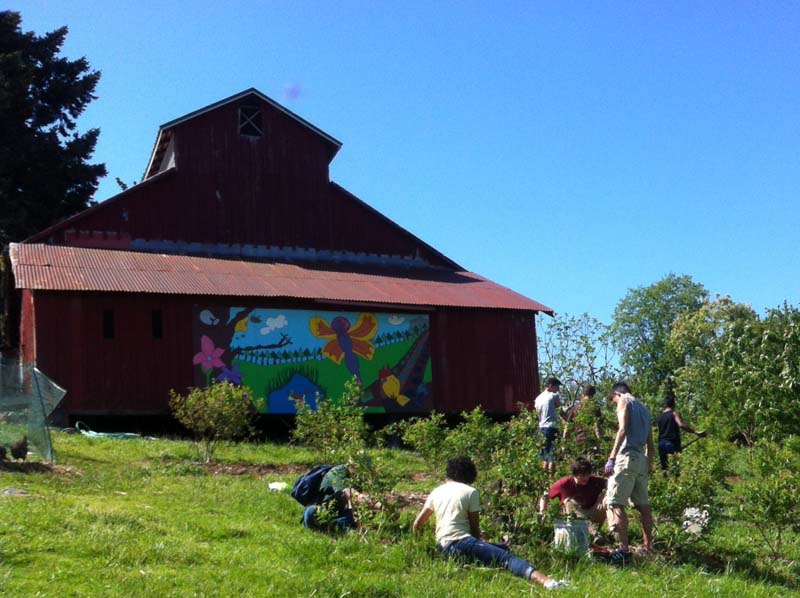
Unfortunately, it is not an efficient facility for modern farm operations, and it lacks important safety features required by OSHA. With funding from Bon Appétit Management Company, we can tackle the most critical needs and begin the process of updating the barn to increase farm operation efficiency. This project will allow us to install energy-efficient lighting and power outlets in the northern portion of the barn to optimize the usefulness of the space ($800). A new staircase, leading from the main barn area to the northern portion will be constructed, and a secure doorway will be added for safe access and egress ($200). Uneven barn floors will be replaced to create a level floor that will improve access, especially for wheelbarrows and other wheeled equipment ($1,000). The west side of the barn will be renovated to improve drying areas for garlic, onions, and herbs and for room-temperature storage for crops such as tomatoes ($1,000). The east side of the barn will receive critical safety upgrades such as a flammables storage cabinet and an eyewash station ($1,500) and add functional improvements including a meeting space, workbench, and lockers for farmers and interns ($500).
Zenger Farm’s strong community partnerships will leverage Bon Appétit Management Company’s support to accomplish more. Historically, we have secured in-kind donations and reduced rates for construction materials for many projects by working with local suppliers. We have also partnered with a local workforce development school, Portland Youth Builders, to gain instructors’ expertise and cost-free labor while providing students with valuable construction experience. This project will significantly improve the safety and efficiency of Zenger Farm’s daily farm operations and will help preserve our property’s extensive history. By updating the old dairy barn for modern vegetable farming, we will drastically improve our ability to provide customers with farm-fresh vegetables.
(Optional) How has working with Bon Appétit been helpful to you and your business?
Bon Appétit Management Company has been one of our greatest supporters for the past six years, both as a customer and through their in-kind support of our Farm to Table event, which has helped grow the event to raise over $65,000 annually.